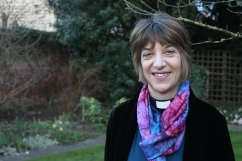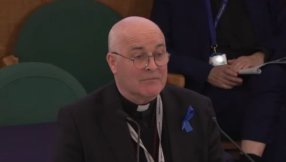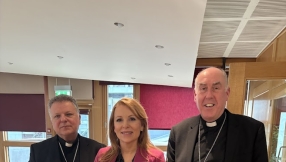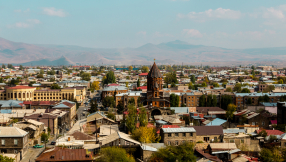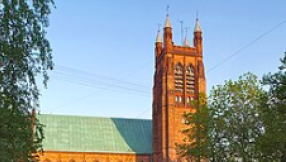This Christmas, like every other, we'll sing some of the great carols that speak of the birth of Jesus.
Some of the greatest are the ones that are clear about his "incarnation". This isn't just an ordinary human baby. We aren't even celebrating the birth of a king or a prophet. Christians believe that in Jesus, God himself became human. He was literally "incarnated" – "enfleshed". But that doesn't just mean that he took on a human body, as if he were just a passenger. It means that he was joined to a human nature.
This is taught in the Bible. In John 1:1 it says, "In the beginning was the Word, and the Word was with God, and the Word was God." Then in verse 14 it says, "The Word became flesh and made his dwelling among us. We have seen his glory, the glory of the One and Only, who came from the Father, full of grace and truth."
Paul reflects this in his letter to the Colossians, where he says that Jesus is "the image of the invisible God, the firstborn over all creation" (1:15) and "For God was pleased to have all his fulness dwell in him" (1:19).
The early Church needed to think through what this doctrine meant and how to express it. One of the earliest formulations of this is the Nicene Creed, adopted in 325 AD. This said: We believe in one Lord, Jesus Christ, the only Son of God, eternally begotten of the Father, God from God, Light from Light, true God from true God, begotten, not made, of one Being with the Father; through him all things were made."
What this creed was trying to say, in language that was true to Scripture and fitted everything else that the Church believed about human beings, was that Jesus was fully God and fully human. He was not created by God; he was God.
Other religions had stories of gods taking human form. Greek and Roman mythology were full of them. But this was quite different: here, God didn't just look human; he became human. Our Christmas carols echo this. We sing "Veiled in flesh the Godhead see, Hail the incarnate Deity" (Hark, the herald); we sing " God of God, Light of Light Eternal" and "Word of the Father, now in flesh appearing" (O come, all ye faithful).
In the end, this is a mystery; you either believe it or you don't. But here are five reasons why the Incarnation is important.
1. It means that God is on our side. He is not a distant deity, judging us and hurling thunderbolts from heaven. He made himself weak and vulnerable. He is infinitely above us, but he came alongside us.
2. It means that God understands us. At one level, this is true anyway; he's God. But Hebrews 4:15 says, "We do not have a high priest who is unable to sympathise with our weaknesses, but we have one who has been tempted in every way just as we are – yet was without sin."
3. It means that God identified himself completely with us, so that we will be completely identified with him. The early Church Fathers put this strongly and strikingly: Irenaeus spoke of "our Lord Jesus Christ, who did, through His transcendent love, become what we are, that He might bring us to be even what He is Himself", while Athanasius wrote, in a highly compressed epigram: "God has become man, so that man might become God."
4. It means that every part of us is under his lordship. Another one of the early Church Fathers, Gregory Nazianzen, argued against another bishop, Apollinaris, who taught that in Jesus God had united himself to a human body alone. Gregory said no: he had assumed a human mind too, because if he hadn't then our minds would remain unredeemed. In a famous phrase, he explained: "What is not assumed is not healed."
5. It is a constant reminder of how God chooses to reveal himself. At Christmas we think of Christ as a baby, vulnerable and helpless, but still God. As CS Lewis put it in The Last Battle, "Once in our world, a Stable had something in it that was bigger than our whole world." The Incarnation reminds us that God is in small and helpless things, and that we should care for them.
Follow @RevMarkWoods on Twitter.











